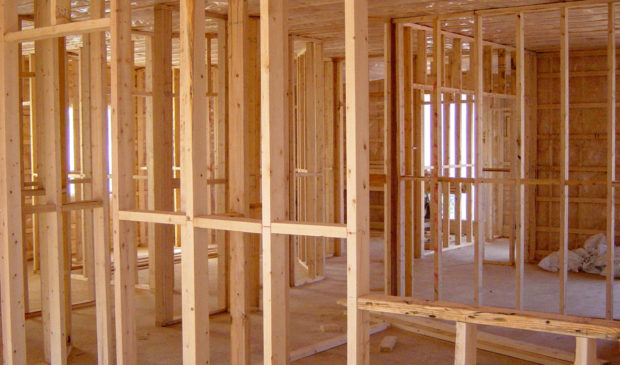City tightens standards for housing development assistance loans
Thursday, August 15, 2019 by
Ryan Thornton The Austin Housing Finance Corporation plans to be more selective with loan applications and partnerships for its Rental Housing Development Assistance and Ownership Housing Development Assistance programs in the coming years.
The programs offer loans to developers promising housing units for a range of economically disadvantaged individuals, from those living in poverty to those who are homeless or on the brink of homelessness. In Fiscal Year 2018-19, the value of those loans totaled roughly $34 million, with about 85 percent of the funds allocated to rental housing development.
Mandy De Mayo, an administrator with the Neighborhood Housing and Community Development Department, told the Housing and Planning Committee Tuesday that with such an investment, the department has started challenging developers to reduce the amount of money they are requesting and to bring in additional sources of project funds.
A variety of factors, from higher land and labor costs to changes in the tax code, have recently led developers to request more money in their applications without bringing enough to the table themselves. James May, a community development manager with the department, said part of the solution moving forward will involve negotiating with the applicants.
Currently, AHFC has a total of 20 affordable housing projects approved in this fiscal year. As the next fiscal year kicks off in October, May said he knows the department can improve “some, if not all” of the application requests simply by talking to the applicants and helping them locate additional funding sources.
May is also in the process of hiring for a full-time position, starting in September, to steward the department’s six existing partnerships and vet proposals for new partnerships. More than just loans, program partners can enjoy benefits from having the city take ownership of the land itself, exempting the development from property taxes.
“We have been approached numerous, numerous, numerous times about partnerships. We want to be really diligent about when we deploy that property tax exemption,” De Mayo said.
Council Member Pio Renteria welcomed the idea of a tighter vetting process, saying the city has previously entered costly contracts with organizations that lack the expertise to undertake such developments. “Usually when there’s a learning process, it’s a very expensive process,” he said.
The department has also begun taking a harder stance against so-called double-dipping, whereby developers may get increased entitlements through a zoning change, for example, where they had promised to provide affordable units, and then attempt to bring an application to the Austin Housing Finance Corporation to help fund the project.
While there is no explicit regulation against this practice, De Mayo said it “didn’t feel good to many of us.” De Mayo commended Council Member Greg Casar for his explicit clarification during a zoning request at Council’s most recent meeting regarding whether or not the request would require a future subsidy by the city.
“This is a zoning case where there is a promise of affordability and it will subsequently have nothing to do with our funding, which I think is important to get out there early on so we’re all clear and all operating off of the same playbook,” she said.
Casar said the demand for affordable housing is a good thing in this case, allowing the city the privilege to choose the best applications and partnerships and maintain standards for development.
“I think, as (Renteria) laid out, for us to have the ability and the space to say no is something that folks need to be prepared for because it’s in the broader interest of the city,” Casar said.
May said the department has already had a number of successful negotiations with applicants that had the desired effect. A project called Del Valle Terrace is a good example. “The original ask came in; after multiple conversations they reduced the requested amount by, I believe, almost a million dollars, and increased the total number of units that they would provide below 50 percent (median family income).
“That’s what we want to do with every single development that we have,” May said.
The Austin Monitor’s work is made possible by donations from the community. Though our reporting covers donors from time to time, we are careful to keep business and editorial efforts separate while maintaining transparency. A complete list of donors is available here, and our code of ethics is explained here.
You're a community leader
And we’re honored you look to us for serious, in-depth news. You know a strong community needs local and dedicated watchdog reporting. We’re here for you and that won’t change. Now will you take the powerful next step and support our nonprofit news organization?









